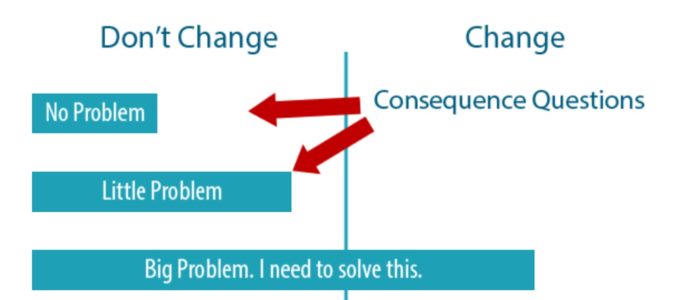Consequence Question 1: How to Help a Couple Change
Marriage mentors, helping people change is a big part of what you need to do. When a couple comes to a class or meets with you, they often know that they want to change something. They know that they want a healthier relationship or they know they want to improve their marriage satisfaction.
When you get underneath that goal to the specific behaviors, they may not know that they need to change a specific behavior.
How do you make a decision? Do you think through the pros and cons of changing? I do.
One time, when I was young and poor, I had an old car that barely ran. I remember one time that we broke down on the freeway. My wife waited in the car while I hiked to a phone (this was before cell phones). I hiked back to the car and waited for the tow truck. While that was a pain, it bother me too much. I didn’t think I could afford to make a car payment.
When I had my first child, suddenly the thought of having a car break down on the freeway in the winter didn’t sound like something I was willing to do. Reliability became much more important to me. The reliability became more important than the cost of car. The pro (reliability) out weighted the con (cost).
People that we mentor go through the same process with behavioral change. It might not be obvious, but we think through the benefit of change vs. the cost. If you want to lose weight, you need to think through the benefit (look better, feel better, healthier, etc.) vs. the cost (dieting and exercising).
My background has been in sales. I’ve been in sales and sales management for over 30 years. I’ve had a great deal of training on how to help people go through a decision process. This is actually the same process as a Biblical / psychological process of change.
People go through a process of recognizing their need to change.
We start out unaware that we have a problem.
Then, we might be aware we have a problem, but it’s not a big enough problem for us to fix.
Then, we determine that it is a big problem and we decide we need to solve it.
The research shows that if you ask consequence questions, it helps people to move forward in the decision process.
Other posts you might like:
Consequence Questions 2: The Big Mistake
Consequence Questions 3: Two Types
What happens when couples don’t see the impact of their behavior?





Comments are closed.